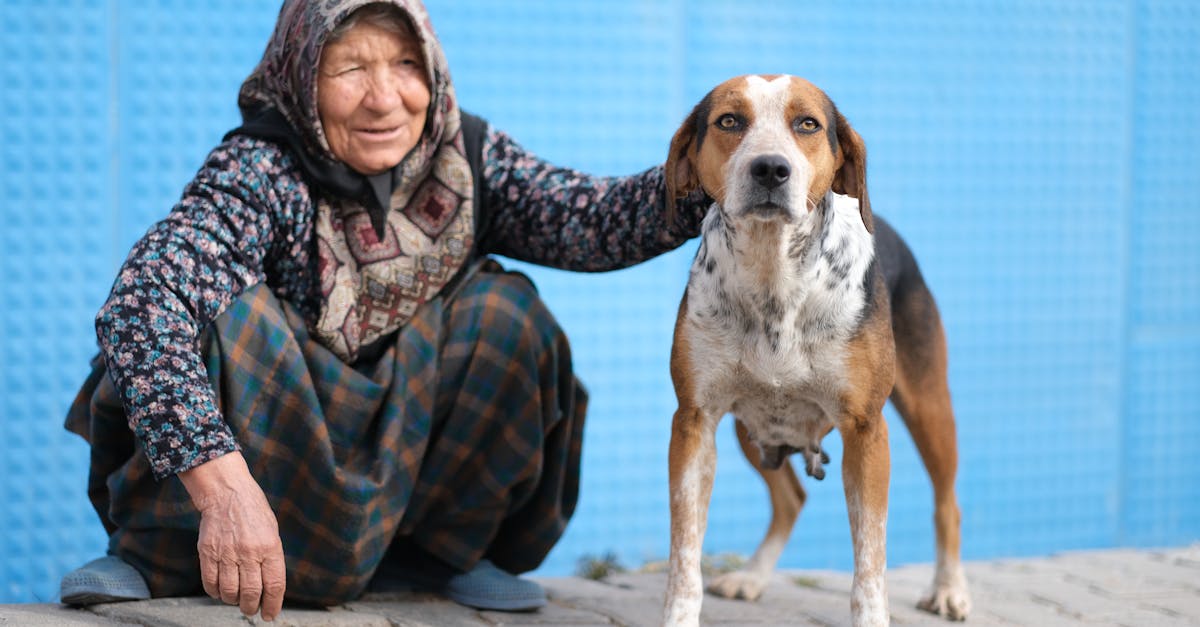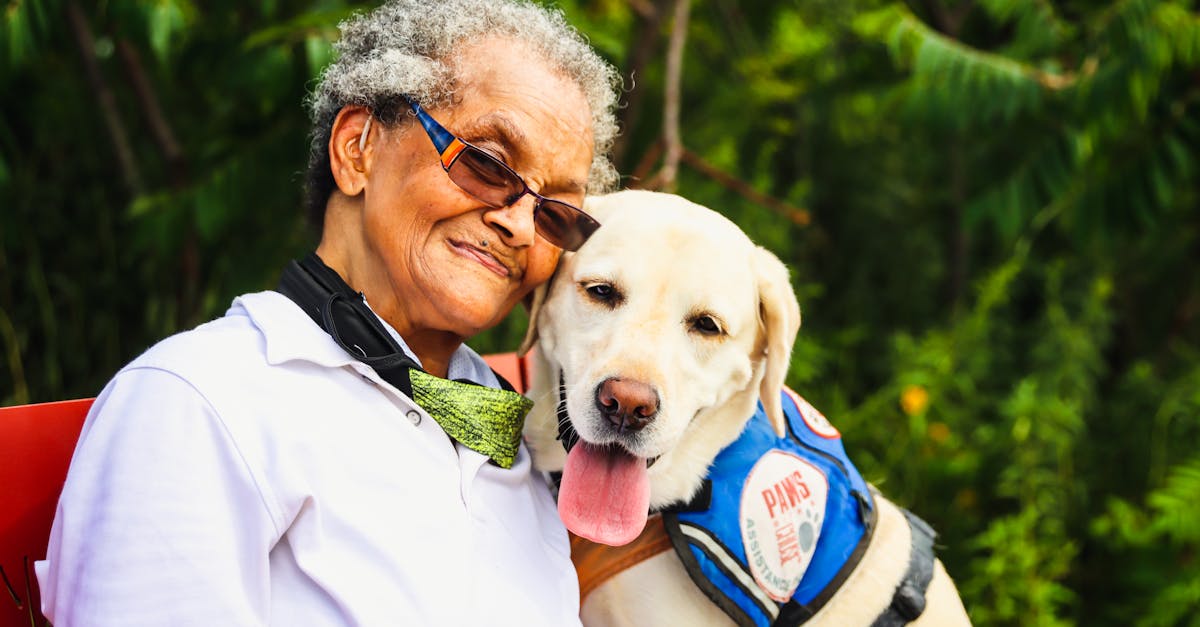Finding the Perfect Canine Companion for Your Golden Years
Ever wonder why so many seniors choose to welcome a dog into their lives? The truth is, a dog can provide companionship, improve mental health, and even encourage physical activity. But with so many breeds to choose from, it can be challenging to find the perfect fit. In my experience, selecting the right dog breed is crucial for ensuring a harmonious relationship. From what I’ve seen, certain breeds are particularly well-suited to meet the unique needs of seniors. Let me tell you, it’s no surprise that some dogs are better companions for older adults than others.
Why the Right Dog Breed Matters
It’s interesting how the right dog breed can make a world of difference. Picture this: you’re a senior who enjoys leisurely walks and quiet evenings at home. A high-energy breed might not be the best match for your lifestyle. On the other hand, a more relaxed, affectionate breed could be the perfect companion. The thing is, choosing the right dog breed can significantly impact your quality of life. Here’s a thought: a well-matched dog can provide emotional support, reduce stress, and even improve your physical health by encouraging regular exercise.
Key Factors to Consider
Before diving into specific breeds, it’s important to consider a few key factors:
- Activity Level: Some breeds require more exercise than others. If you have mobility issues or prefer a more sedentary lifestyle, a low-energy breed might be best.
- Size: Larger dogs can be more challenging to manage, especially if you live in a smaller space. Smaller breeds are often more adaptable to apartment living.
- Temperament: Some breeds are naturally more affectionate and calmer, making them ideal for seniors.
- Health Needs: Different breeds come with different health concerns. It’s essential to consider the potential medical issues associated with each breed.
Top Dog Breeds for Seniors
1. Cavalier King Charles Spaniel
Personally, I’ve found that Cavalier King Charles Spaniels are a fantastic choice for seniors. These dogs are known for their gentle and affectionate nature. They are small enough to be easily managed but still have enough energy to enjoy a daily walk. Their friendly disposition makes them excellent companions, and they are generally good with other pets and children.
2. Pug
You might find this helpful: Pugs are another great option for seniors. These small dogs are known for their charming personalities and low exercise needs. Pugs are incredibly affectionate and thrive on human interaction. They are also relatively low-maintenance in terms of grooming, which can be a significant advantage for older adults.
3. Shih Tzu
In my opinion, Shih Tzus are one of the best breeds for seniors. These dogs are known for their friendly and outgoing nature. They are small, making them easy to handle, and they don’t require a lot of exercises. Shih Tzus are also hypoallergenic, which is a bonus for seniors with allergies.
4. Bichon Frise
Imagine if you had a dog that was both playful and affectionate. That’s what you get with a Bichon Frise. These dogs are small, easy to train, and have a cheerful disposition. They are also hypoallergenic and have a low shedding coat, making them a great option for seniors who want a low-maintenance pet.
5. French Bulldog
From my point of view, French Bulldogs are an excellent choice for seniors. These dogs are known for their calm and affectionate nature. They are relatively low-energy and don’t require a lot of exercises. French Bulldogs are also small and easy to manage, making them ideal for seniors who want a loving companion without the hassle of a high-maintenance breed.
The Benefits of Owning a Dog as a Senior
It’s no surprise that owning a dog can bring numerous benefits to seniors. Here are some of the key advantages:
Companionship and Emotional Support
Dogs provide unwavering companionship and emotional support. They are always there to offer a listening ear and a comforting presence. This can be particularly beneficial for seniors who may feel lonely or isolated.
Physical Activity
Having a dog encourages regular physical activity. Whether it’s a daily walk or a game of fetch, dogs help keep their owners active. This can lead to improved cardiovascular health, increased mobility, and better overall fitness.
Mental Health
It’s interesting that interacting with dogs can have a positive impact on mental health. Studies have shown that spending time with dogs can reduce stress, anxiety, and depression. The simple act of petting a dog can release endorphins and promote a sense of well-being.
Routine and Structure
Dogs thrive on routine, and having a dog can help seniors establish a daily schedule. This can be particularly beneficial for those who may struggle with maintaining a structured routine.
Social Interaction
Owning a dog can also increase social interaction. Dogs are natural icebreakers, and taking your dog for a walk can lead to conversations and connections with other dog owners and neighbors.
Practical Considerations
Financial Responsibility
Owning a dog comes with financial responsibilities. It’s important to consider the costs associated with food, grooming, veterinary care, and other expenses. From what I’ve seen, some breeds may have higher medical costs due to breed-specific health issues.
Time Commitment
Dogs require time and attention. It’s essential to consider whether you have the time and energy to meet the needs of a dog. This includes feeding, grooming, exercise, and regular veterinary visits.
Living Arrangements
Your living situation is another crucial factor. If you live in an apartment or a senior living community, it’s important to check the pet policies. Some places may have restrictions on the size or breed of dogs allowed.
Making the Decision
Choosing the right dog breed is a personal decision that should be based on your lifestyle, preferences, and needs. I couldn’t help but notice that seniors who take the time to carefully select a breed that matches their lifestyle tend to have more fulfilling and enjoyable experiences with their pets.
Research and Preparation
Before bringing a dog home, it’s essential to do thorough research. Consider visiting local shelters or breed-specific rescues to meet different breeds and learn more about their characteristics. Talking to other dog owners and seeking advice from veterinarians can also provide valuable insights.
Adopting vs. Buying
Adopting a dog from a shelter or rescue organization can be a rewarding experience. Many senior dogs are looking for loving homes and can make wonderful companions. If you prefer a specific breed, consider reaching out to breed-specific rescues.
Embracing the Joy of Dog Ownership
The joy of owning a dog is immeasurable. Dogs bring love, laughter, and companionship into our lives. For seniors, the right dog can be a source of comfort, motivation, and happiness. It dawned on me that the bond between a senior and their dog is truly special and can enhance the quality of life in countless ways.
Taking the Next Step
If you’ve ever considered bringing a dog into your life, now you know the key factors to consider and the breeds that may be the best fit. Take the time to research, meet different dogs, and think about your lifestyle and preferences. The perfect canine companion is out there, ready to bring joy and companionship into your golden years.
In my own life, I’ve seen the incredible impact that a well-matched dog can have on a senior. It’s a decision that requires careful consideration, but the rewards are well worth the effort. So, if you’re a senior looking for the best dog breed, consider the options mentioned above and take the first step towards finding your perfect furry friend.
Here’s to many happy and fulfilling years with your new canine companion! 🐾















